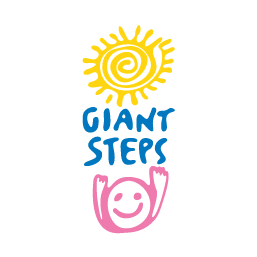Primary School
MELBOURNE
Primary School
MELBOURNE
The curriculum’s key learning areas support a student’s ongoing learning, social development and ability to participate in our society.
The Giant Steps Primary School teaches across all subject areas from the Victorian curriculum; English, Maths, Science, History, Geography, Creative Arts, Physical and Personal Education and Health.
Teachers and therapists collaborate to write diverse and motivating scope and sequences for learning across a range of meaningful and purposeful topics for our students. We aim to teach our students skills and knowledge across a range of environments such as school, home and the wider community to ensure they can generalise their learning to a variety of contexts.
The Giant Steps program prides itself on delivering a functional program to support its students’ individual engagement and learning. For instance, teaching Maths, concepts of number; addition, subtraction and the value and handling of money, has led to the design of our ‘financial literacy program’. Through the delicate differentiation of the curriculum, the use of resources and adapted environments, children move from learning in their classroom spaces to engaging in real life community experiences on a weekly basis. These activities are often the most challenging for many students with autism as the wider community is highly unpredictable and brings them into contact with unfamiliar people. Our teaching team provides all the necessary supports for the students to be included in the community and develop important skills in a meaningful way. These activities include using public transport, using a bank, shopping in supermarkets and stores, and swimming in the community pool. Whilst financial literacy and exchanging money is the primary objective, these activities also provide additional opportunities to integrate other areas of the curriculum including learning about the environment (HSIE), reading to gather information (English) and road safety (PDHPE) to name a few. In addition they also have the opportunity to try new experiences which may have seemed inaccessible including hiking and attending community events like participating in live performances and going on overnight camps away from their familiar home environments.
Teachers and therapists in the primary school at Giant Steps collaborate to ensure teaching and learning is dynamic and innovative, engaging our students through meaningful content and resourcing using diverse pedagogical strategies. We aim to motivate our students to be part of a class group, focusing on togetherness, smooth transitions, social learning and independence. Families are provided with two academic reports per year based on student individual learning goals and communicated with regularly through a range of means such as newsletters, emails, phone calls and face to face meetings.

Sam Kershler
Head of Teaching and LearningSam has a Bachelor of the Arts (Psychology), as well as a Diploma of Education and Certificate of Autism Studies.
Sam began his teaching role at Giant Steps Sydney in 2013, and moved to Melbourne in 2016 as part of the team to establish the Giant Steps Melbourne site. He has worked across the primary and secondary curricula to support students across all areas of their school-life. In 2021, Sam worked with the team to establish the Adult Autism Service program in Melbourne.
He completed longitudinal training in the Assessment and Analysis of Severe and Challenging Behaviour conducted by the Institute of Applied Behaviour Analysis in 2015.
In 2020, Sam led the senior team to implement the first Victorian Certificate of Applied Learning (VCAL) at Giant Steps Australia. In this program, the students created their own business called Paws for Giant Steps. Through this process, Sam came to realise his passion for supporting students to increase their independent and functional skills as they prepare for post-school life.
Teachers and therapists in the primary school at Giant Steps collaborate to ensure teaching and learning is dynamic and innovative.
